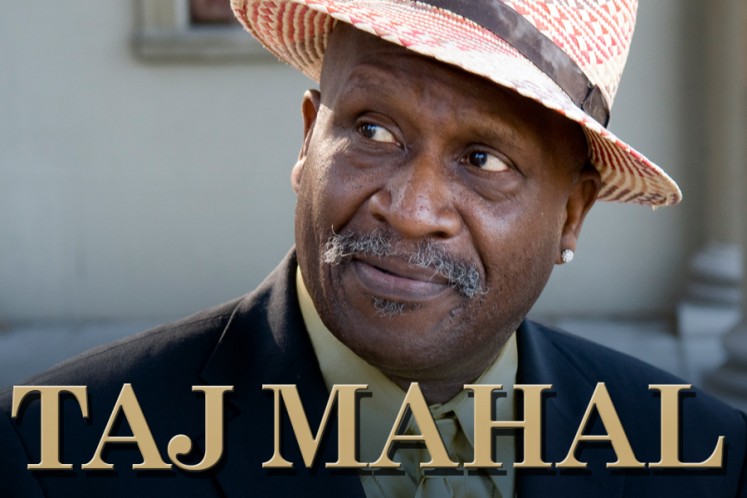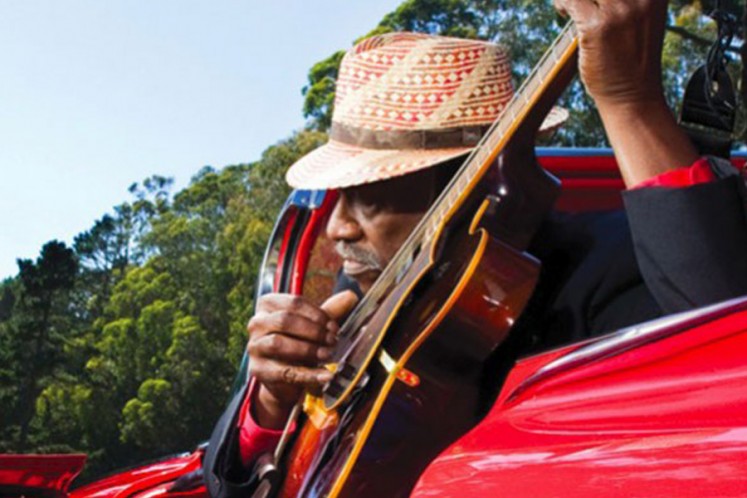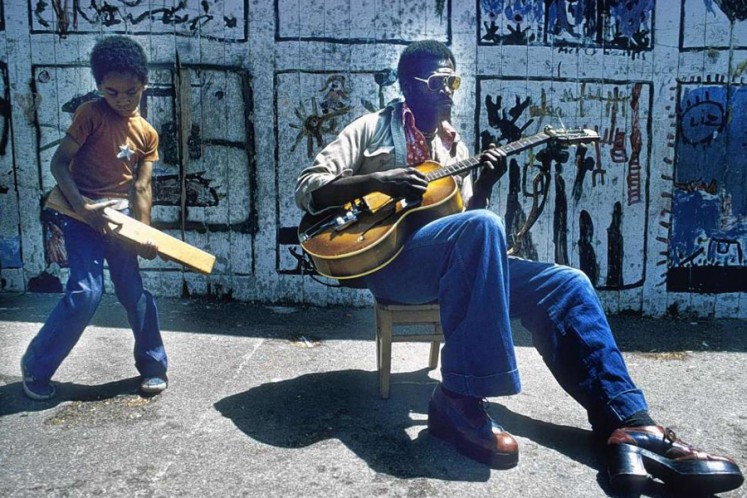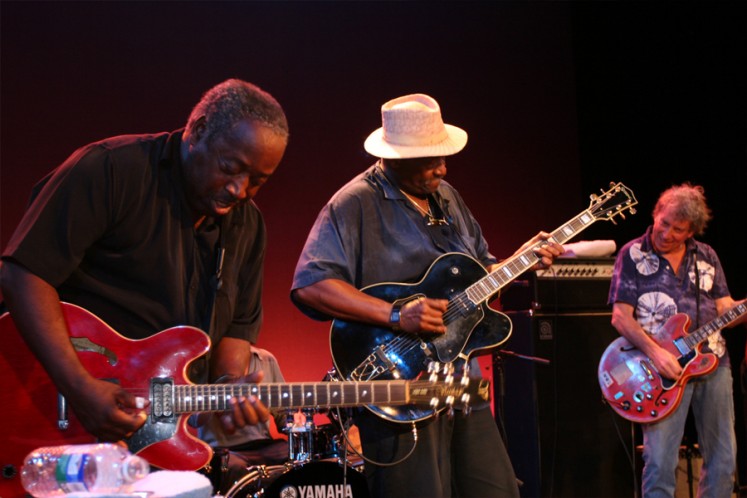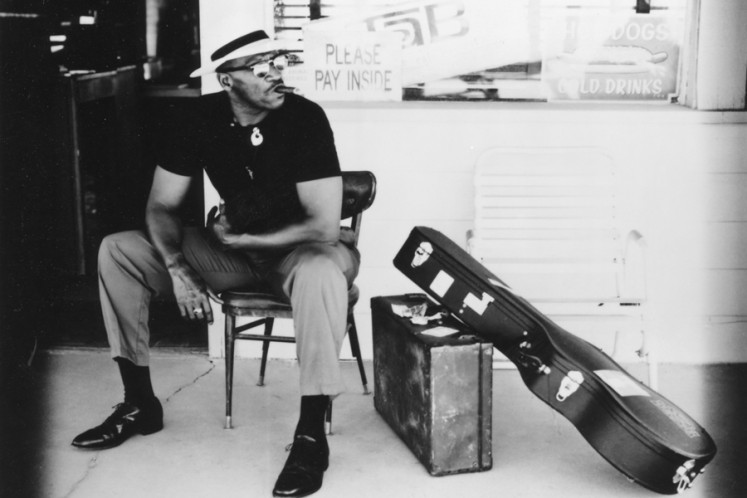Taj Mahal
Featuring Very Special Guests Rob Ickes & Trey Hensley
Taj Mahal believes that the blues are everywhere, transcending time and place. The 76-year-old legend, who has been making music for six decades, makes the music that has meaning to him. “I just want to be able to make the music that I’m hearing come to me,” he said. “That’s what I did. When I say, ‘I did,’ it’s not coming from ego. The music comes from somewhere. You’re just the conduit it comes through. You’re here to receive the gift.”
For this great artist, his gift has served to reveal the scope of the blues to a wider audience. “The blues is bigger than most people think,” he said. “You could hear Mozart play the blues. It might be more like a lament. It might be more melancholy, but I’m going to tell you, the blues is in there.”
Taj Mahal has spent decades pursuing the roots of the music to the American South, the Caribbean and Africa, creating new sounds again and again. It’s the juxtaposition of the traditional and the avant-garde that has brought him praise from rock ‘n roll stars like Eric Clapton and the Rolling Stones.
The artist’s exploration of music began as an exploration of self. He was born in 1942 in Harlem to a jazz pianist father with Caribbean roots and a gospel-singing school teacher mother from South Carolina. “I was raised really conscious of my African roots,” he said. “I was trying to find out where what we did here connected to what we left there.”
In the 1950s, the family moved to Springfield, Mass., a melting pot for immigrants. While there was music from a variety of cultures, it was a challenge to hear it. “Things were different in those days,” Taj said. “There weren’t a lot of places that African-Americans had to go out and entertain themselves, so people did a lot of entertaining in their homes. Friday and Saturday night, you’d move the furniture, mop and wax the floor and set things up so people could pop over and hear all the music.”
Taj Mahal attended the University of Massachusetts at Amherst, where he studied agriculture and animal husbandry. He felt that his interest in agriculture was as basic as his interest in music. “Those were the two things I recognized, even as a very young child, that people were never going to do without,” he said.
In 1964, Taj headed to Los Angeles and formed a group, the Rising Sons. He released several albums and received a Grammy nomination, the first of 14, for the soundtrack from the film, Sounder. In the 1980s, he moved to Hawaii, and as he toured internationally, his gritty blues sound began to incorporate Latin, reggae, Caribbean, calypso, Cajun and jazz, layered with an Afrocentric roots base.
Taj Mahal hasn’t done it alone. For more than 40 years, he and bandmates bassist Bill Rich and percussionist Kester Smith have been on a wild ride through reggae, funk, jazz and more. In 2019, guitarist and lap steel virtuoso Bobby Ingrano joined the group and they became the Taj Mahal Quartet.
It’s hard to quantify Taj Mahal’s importance, but there are a few hints. He’s been nominated for a Grammy 14 times and won three, the latest in 2017 for TajMo, a collaboration with Keb’ Mo.’ He is in the Blues Hall of Fame and has won a Lifetime Achievement Award from the Americana Music Association. Mahal is proud of the accolades, but that’s not what drives him. “I was raised really conscious of my African roots,” he said. “Like it or not, the music and the movement of my people to the West completely shaped the modern music that we have. I’m not trying to start crowing about it, but popular music is shaped on the backs and shoulders and foundation of what came out of Africa.”
